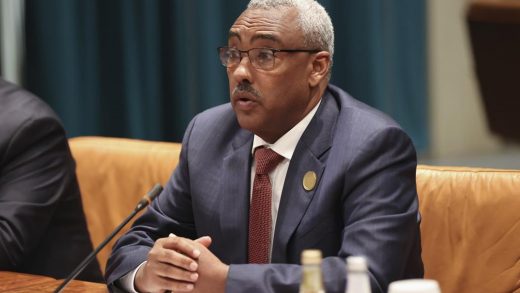
As Manitoba schools warn about a teacher shortage, an internationally trained educator and her family are bemoaning the bureaucracy required to become fully certified and unclear instructions that have left them in limbo.
Manitoba Education’s certification unit is refusing to grant an experienced computer science teacher accreditation to work on a permanent basis despite a miscommunication about her outstanding credits and a university dean vouching for her skills.
“Somebody has to apply some logic or reasoning or something to that unit. To me, this is bureaucracy at its worst,” said Dalbir Bains, whose wife has spent more than five years working towards becoming a certified teacher.
Semantics and officials’ unwillingness to consider the unique situation have caused unnecessary stress and delays, Bains said.
An outspoken advocate for newcomer teachers said this case is but one example of the countless barriers facing educators who have studied outside Manitoba and evidence the provincial office needs to undergo systemic change.
“It’s a story that’s shared by so many, many IETs (internationally educated teachers). It is a story that I have, personally — a journey that I went through myself,” said Suni Matthews, a retired principal and co-chairwoman of Equity Matters, a community coalition advocating for increased efforts to recruit and retain Indigenous and racialized teachers.
Twenty-five years ago, Bains’ wife — who asked her name not be printed for fear of reprisal at work — immigrated to Canada with two degrees, one in science and another in education.
She has since studied computer science at the University of Manitoba, worked in that field for more than 15 years and, after considering a career change, got her credentials assessed by the province in 2018.
The mother of two was told she needed to complete 30 credit hours of “professional education coursework” to obtain full accreditation. At the time, she was granted a provisional license with general science and mathematics as her teachables.
“We recommend you contact a student advisor at one of Manitoba’s universities regarding completion of the above requirement(s),” states an excerpt from the letter she received from the certification department in December 2018.
Per the province’s request, she consulted with an academic advisor and bolstered her resumé with a post-baccalaureate diploma in education while working full-time at a Winnipeg high school and helping its computer science program to expand.
In a January 2019 email, the adviser indicated the flexible program allows students to design their schedule and tailor it to their interests with an option to enrol in classes outside the faculty of education.
The Indian-Canadian teacher took nine credits outside the faculty.
When she applied for reclassification last year, the province informed her those courses would not be counted for that reason and rejected a subsequent appeal. Her current limited certificate is set to expire at the end of the academic year.
“I’m not trying to take shortcuts. Had I known that, I would’ve taken those three courses from the faculty of education,” said the teacher, who is currently enrolled in one education course in a bid to meet the requirements while juggling her parenting and teaching responsibilities.
The hours that will be required to redo all the credits would be far better spent making lesson plans more engaging, she said.
Charlotte Enns, then-acting dean of education, wrote to the teacher in the spring expressing her disappointment about the province’s decision.
“At a time when there is such a great need for certified teachers in Manitoba, it is surprising that the certification unit cannot show some flexibility. This is a teacher who has been successfully teaching since 2018 — do you really think that completing (nine) credit hours of education coursework will make a difference in her teaching?” Enns said in a June email.
The professor noted her office would ensure academic advisors make clear information presented to teachers trying to meet certification requirements in the future.
A government spokesperson said the province was unable to discuss specifics, but they indicated in a statement issued on Thursday that the certification unit had been asked to review the Indian-Canadian educator’s case.
This situation could have been avoided entirely if there was still a hub for internationally educated teachers that offered academic, language, advocacy and mentorship services at the U of M, Matthews said.
The pilot program was discontinued, much to the frustration of Matthews and her colleagues at both Equity Matters and the Newcomer Education Coalition.
“Each system (from education faculties to government) has to look at ‘What are the barriers and what can we do to remove those barriers actively?’ and that requires change — changing your own way of thinking, challenging your own systems and biases,” she said.
Certification branch employees should receive more training to support this particular group and endorse specific courses that will help people navigate Canadian classroom culture, Matthews said.
It’s important for newcomer students to see themselves reflected in their classrooms and that can only happen if educators are supported, she added.



